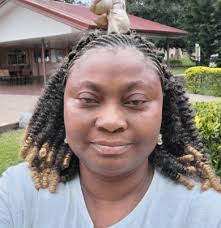The Ghana Association of Savings and Loans Companies (GHASALC), for the first time in almost half a decade, is optimistic that its members will perform better this year as government continues to settle the debts owed by defunct investment firms which were under regulation of the Securities and Exchange Commission (SEC).
Savings and Loans Companies which survived the financial sector clean-up exercise by the Bank of Ghana by the end of 2019 have had to be extremely cautious in lending, as they had huge funds locked up in those investment banks that had their licences revoked by the regulator due to poor management.
Board Chairman of GHASALC, Philip Odei Asare, in an interview with the B&FT said every surviving Savings and Loans Company has funds locked up somewhere, and this is a threat to their survival. Even though he was not able to mention the total amount locked up, he told the paper “It runs into billions of Ghana cedis”.
He said the release of a total GH¢3.56billion to settle remaining depositor claims of the 347 defunct microfinance companies, 23 Savings and Loans and Finance Houses in the last quarter of 2020 came as a relief to the sector – as it meant surviving companies can depend on these funds to maintain and revive their operations.
“Institutions which got their funds locked up are getting them paid back. The past situation wherein you had about 40 percent of your funds locked up which you could not deploy to make revenue, that period is over. You have no excuse to not do better than previous years. So far, funds locked up with the Security and Exchange Commission are being paid; there are one or two delays, but a lot of the parties are getting 50 percent of their funds in cash.
“When a bank is not troubled by capital deficiency, the ability to increase business activities is stronger. We are believing that with that payment 2021 will be a stronger period, and we expect our members to be well prepared for the business opportunities.”
He said GHASALC is optimistic that barring any force majeure, “one important thing to note is that we expect 2021 to be far better than 2020”.
He added that measures the Bank of Ghana has put in place to properly manage the sector will be enforced strictly, and this will lead to high-performance levels across the sector.
“Now, we have a lot of interaction with the central bank. They are supporting us with corporate governance training, and are supporting us by making sure that our governance structures are in line with modern practice. Now it’s mandatory for board members to go through governance training.
“The things of the past, we do not expect them to visit us again. We foresee an industry that plays according to the rules and which will be providing more space for the citizenry to finance their business – especially the SME sector, because that is where our focus is,” he added.
In total, the Ghana Association of Savings and Loans Companies (GHASALC) granted 12.947 million loans valued at GH¢4.893billion as at the end of 2019, which was an increase from 7.926 million of loans valued at about GH¢3.212billion granted in 2018 by members of the association.
This represents a 48 percent increase in loan facilities by members of the association, despite challenges in the 2019 financial year. This figure is likely to go down for 2020 due to the impact of COVID-19 – but Mr. Odei Asare believes that with the optimism the sector is envisaging for 2021, it is hopeful many companies will be able to retrieve a lot more of the loans in 2019 (which is said to be the highest in recent times) so as to reduce the level of expected Non-Performing Loans (NPLs), and in the process generate enough liquidity to inject into their operations.










